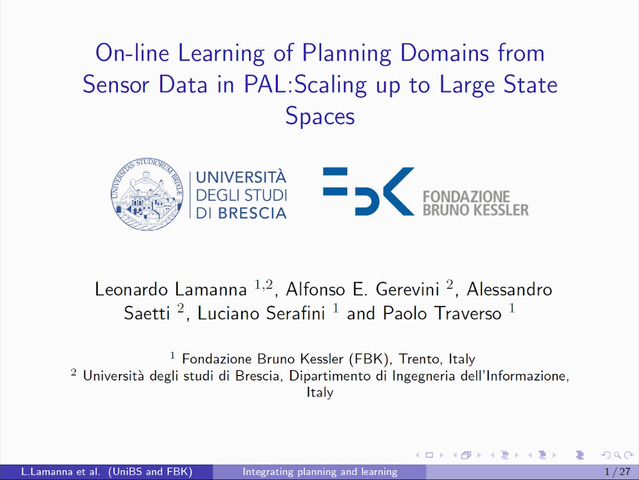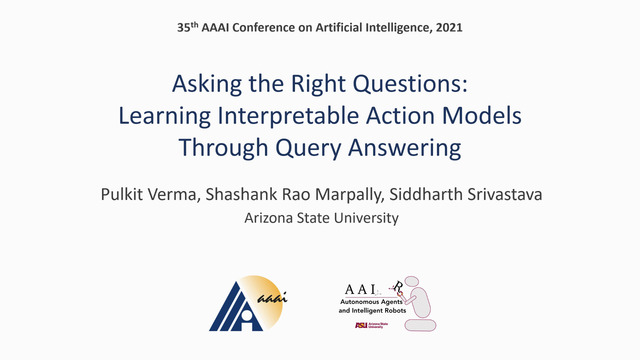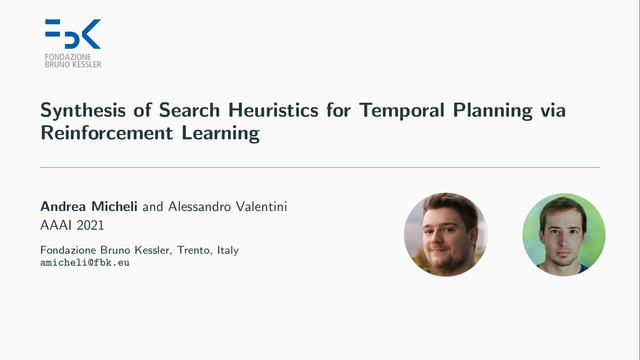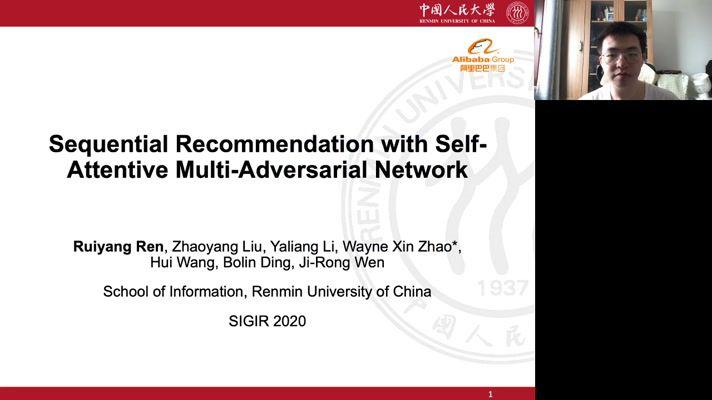Abstract:
We propose an approach to learn an extensional representation of a discrete deterministic planning domain from observations in a continuous space navigated by the agent actions. This is achieved through the use of a perception function providing the likelihood of a real-value observation being in a given state of the planning domain after executing an action. The agent learns an extensional representation of the domain (the set of states, the transitions from states to states caused by actions) and the perception function on-line, while it acts for accomplishing its task. In order to provide a practical approach that can scale up to large state spaces, a “draft” intensional (PDDL-based) model of the planning domain is used to guide the exploration of the environment and learn the states and state transitions. The proposed approach uses a novel algorithm to (i) construct the extensional representation of the domain by interleaving symbolic planning in the PDDL intensional representation and search in the state transition graph of the extensional representation; (ii) incrementally refine the intensional representation taking into account information about the actions that the agent cannot execute. An experimental analysis shows that the novel approach can scale up to large state spaces, thus overcoming the limits in scalability of the previous work.










































